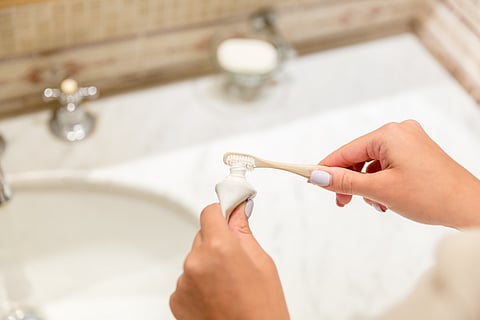FRIDAY, Dec. 22, 2023 (HealthDay News) -- Daily toothbrushing among hospitalized patients is associated with lower rates of hospital-acquired pneumonia (HAP) and improved outcomes, according to a review published online Dec. 18 in JAMA Internal Medicine.
Selina Ehrenzeller, M.D., and Michael Klompas, M.D., M.P.H., from Harvard University in Boston, conducted a systematic literature review and meta-analysis to assess whether daily toothbrushing may be an effective strategy to prevent HAP.
Based on 15 included trials (10,742 patients), the researchers found that toothbrushing was associated with a significantly lower risk for HAP (risk ratio [RR], 0.67) and intensive care unit (ICU) mortality (RR, 0.81). This reduction in pneumonia incidence was significant for patients receiving invasive mechanical ventilation (RR, 0.68) but not for patients who were not receiving invasive mechanical ventilation. Furthermore, toothbrushing for patients in the ICU was associated with fewer days of mechanical ventilation (mean difference, −1.24 days) and a shorter ICU length of stay (mean difference, −1.78 days). Similar effect estimates were seen for brushing twice a day or at more frequent intervals. When restricting the analysis to seven studies at low risk for bias (1,367 patients), results were similar. No association was seen for toothbrushing on non-ICU hospital length of stay and use of antibiotics.
"Programs and policies to encourage daily toothbrushing are warranted," the authors write.
Abstract/Full Text (subscription or payment may be required)
Editorial (subscription or payment may be required)


